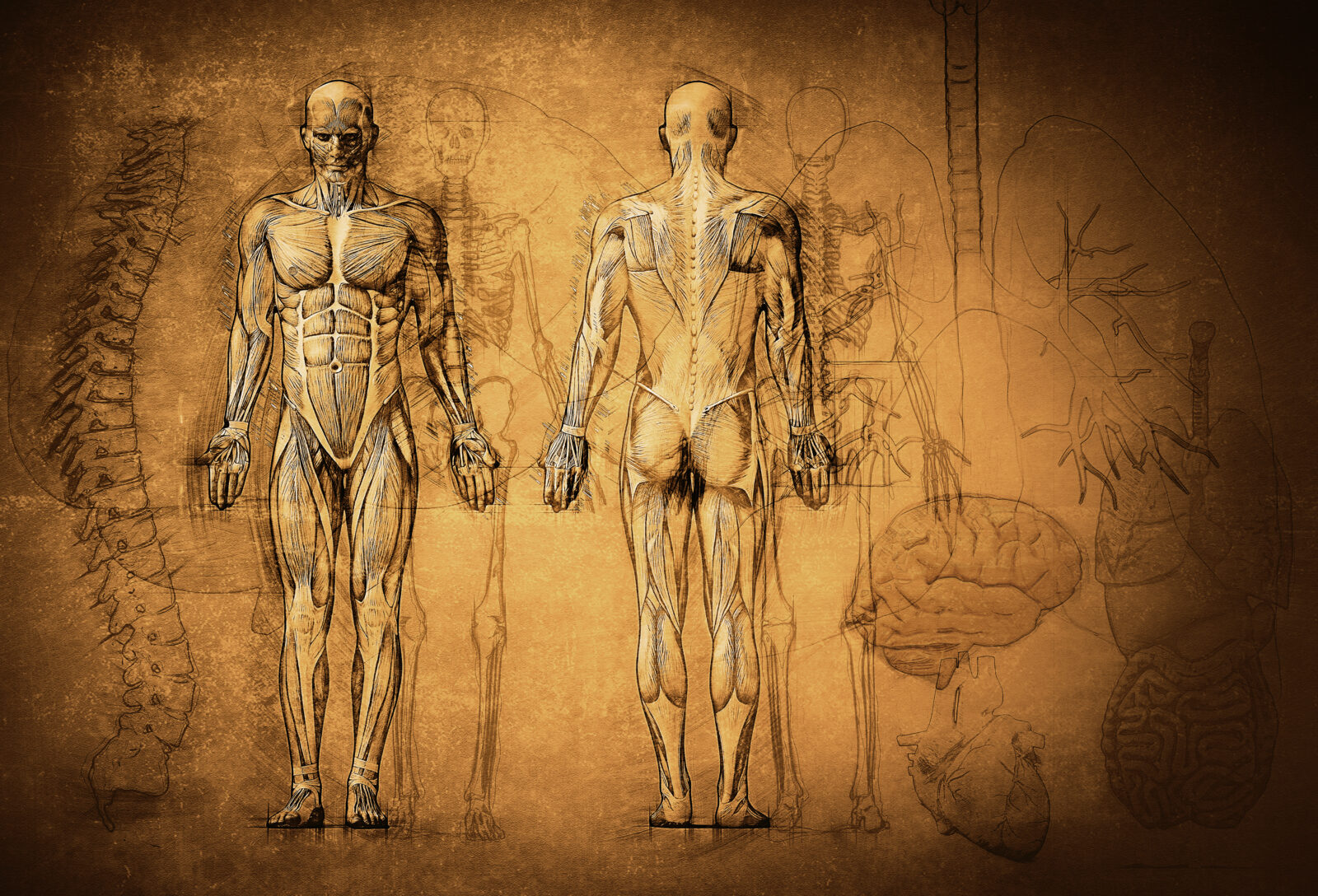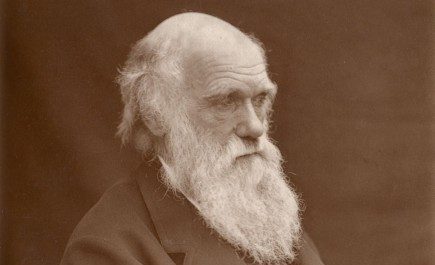


Ann Gauger on Her New Book, God’s Grandeur: The Catholic Case for Intelligent Design
Today’s ID the Future spotlights the richly stimulating new book, God’s Grandeur: The Catholic Case for Intelligent Design. Edited by biologist Ann Gauger, the anthology explores the evidence for intelligent design from a Catholic perspective, with contributions from an impressive range of Catholic scientists, philosophers, and theologians, including Gauger; internationally renowned paleontologist Günter Bechly; philosopher Jay Richards; molecular biologist Michael Behe; Rector of the European University in Rome Fr. Pedro Barrajón, LC; Aquinas and Evolution author Michael Chaberek; philosopher J. Budziszewski; professor of neurosurgery Michael Egnor; and noted Dante scholar Anthony Esolen. Listen in as Gauger gives a quick flyover of the book’s content, tells how she found her way into the intelligent design fold, and explains why Catholics should reject modern evolutionary theory, not only on theological grounds but scientific ones as well. Is it just for Catholics? Gauger says that the vast majority of the theological arguments will resonate with Christians of every stripe, and the parts focused on science and philosophy should resonate with anyone seeking to determine the best, most reasonable explanation for the origin of life, the universe, and the human race. Get your copy of the book here.

Evolution: How Darwin’s Four Causal Factors Fail
On today’s ID the Future, Your Designed Body co-author and systems engineer Steve Laufmann continues his conversation with host and neurosurgeon Michael Egnor. In this episode, Laufmann reviews four causal factors involved in Darwin’s theory of evolution, and explains why they lack the power to generate life’s great variety of forms. To dive deeper into his argument, check out Laufmann’s new book co-authored with physician Howard Glicksman.

A Neurosurgeon and an Engineer Explore Your Designed Body
On today’s ID the Future, neurosurgeon Michael Egnor hosts systems engineer Steve Laufmann, author with physician Howard Glicksman of the new book Your Designed Body. Egnor makes the surprising confession that his medical library is full of engineering texts because at some point he discovered that engineering texts, and engineering principles, often shed more light on human physiology than did his physiology books. Egnor, then, is extraordinarily well prepared to interview Laufmann about the amazing engineering of the human body. Tune in for Part 1, and stay tuned for Parts 2 and 3.

Your Designed Respiratory System: Causal Circularities and Irreducible Complexities
On this ID the Future, Your Designed Body author and physician Howard Glicksman again sits down with host and professor of neurosurgery Michael Egnor to further explore Glicksman’s new book, co-authored with engineer Steve Laufmann. Here Glicksman gives a quick flyover of what they explore in fascinating depth in the book, namely the irreducible complexity of that extraordinary systems of systems that is the human respiratory system. As Glicksman explains, there are individual systems that are irreducibly complex, and these are joined together into a higher-level system of systems that is also irreducibly complex, marked by causal circularities and coherent interdependencies at every turn. Without all of it guided by various highly precise control mechanisms, no life. Darwinian gradualism is powerless to construct such wonders, Glicksman and Laufmann argue. The better explanation, they suggest, is the ingenious engineering of an intelligent designer. Get your copy of the book here.

Into the Mystic with a Neurosurgeon and a Neurotheologian
Today’s ID the Future continues the conversation between neurosurgeon Michael Egnor and neurotheologian Andrew Newberg. In this second and concluding part of their discussion, they further explore what experiments using brain scans reveal about how the brain is affected by meditation and mystical experiences, including near-death experiences. Also, what parts of the brain light up, and what parts go dormant, when someone is “speaking in tongues,” and how does someone who has this experience describe it, and does that description mesh with or clash with what turns up on the brain scans? Tune in to hear Newberg’s answer to this and other issues related to the mind-brain problem and the mystical. This interview is posted here by permission of Mind Matters and the Walter Bradley Center for Natural and Artificial Intelligence.

The Mind/Brain Problem and the Power of Meditative Prayer
It’s hard to know where the brain ends and the mind begins. How can studying our brains give us insight into our minds? On this ID the Future, neuroscientist Andrew Newberg and neurosurgeon Michael Egnor sit down for a chat about all things brain related including neurotheology, methods of studying the brain, and research on how various forms of religious and non-religious meditation actually change the wiring of the brain, including in particular a study Newberg did on Franciscan nuns and what they refer to as “centering prayer.” This interview is borrowed, with permission, from Mind Matters, a podcast of the Walter Bradley Center for Natural and Artificial Intelligence.

Evolutionary Psychology: Checkered Past, Checkered Present
On this ID the Future host Casey Luskin interviews science journalist Denyse O’Leary about her recent essay, “Is Evolutionary Psychology a Legitimate Way to Understand Our Humanity,” which appears in the new Harvest House anthology co-edited by Luskin, The Comprehensive Guide to Science and Faith. O’Leary, a science journalist and co-author of The Spiritual Brain, offers a withering critique of evolutionary psychology and traces its roots, beginning with The Descent of Man (1871), where Charles Darwin attributed various human behaviors to natural and sexual selection. That fed into what became known as social Darwinism, which fell out of favor after World War II thanks to Hitler and the Nazis’ application of social Darwinist ideas to defend Nordic superiority and genocide. The ideas resurfaced in modified form under the banner of sociobiology, and then later still, as evolutionary psychology. This latter manifestation, O’Leary says, marks the most comprehensive attempt to explain the various facets of human behavior in evolutionary terms, but its comprehensiveness has not won it widespread acceptance. Far from it. The field is quick to offer explanations for why we do what we do, but it has left a train of blunders in its wake. So for instance, evolutionary psychologists claimed that we associate pink with little girls and blue with little boys due to the sex-based division of labor among our primitive ancestors over the course of millions of years of evolutionary development. In primitive societies the girls gathered fruit (pink when ripe), and the boys fished (and blue is associated with water). Mystery solved? But wait. In Victorian England, pink was associated with boys and blue with girls. Do we have an evolutionary explanation for that as well? Give any reasonably creative company of evolutionary psychologists an evening and a twelve-pack, and they’d probably be able to dream up a sure-fire evolutionary explanation. Evolutionary psychology, with its ability to explain everything and its opposite, convincingly explains nothing. According to O’Leary, distaste for the field stretches well beyond the company of Darwin dissenters. Most evolutionists steer clear of evolutionary psychology, and even some who probably count themselves as fully paid-up members of the Darwinian materialist guild openly criticize it. Thus it seems that if we want to effectively explain human behavior in all its messy richness, we would do well to look beyond the box of just-so stories built from Darwin’s toolkit of natural and sexual selection.

Neurosurgeon Uprising, Pt. 2: Egnor Takes on Mind/Brain Materialism
On this episode of ID the Future we hear a neurosurgeon’s view on materialistic bias afflicting the entire field of neuroscience. It’s a bias, he argues, that leads some scientists to misunderstand the meaning of their experiments. Darwinists “allergic to teleology” ignore clear evidence that purpose is essential to the mind. This talk is bonus material accompanying the action-filled and thought provoking series of short videos on science and materialism at scienceuprising.com.

Michael Egnor on What the Craniopagus Twins Tells Us about Mind and Brain
On this episode of ID The Future, neurosurgery professor Michael Egnor explores the case of Tatiana and Krista, the “Craniopagus Twins.” Their condition, he says, provides evidence against strict materialism. Tatiana and Krista are connected at the thalamus (which controls such things as wakefulness, motor function and vision) through a structure called a thalamic bridge. This bridge enables them to see through each other’s eyes to and control each other’s limbs. Egnor explains how their separate personalities and thoughts nevertheless show that there is something about the mind not reducible to the brain. Egnor also goes through the mind-brain research of Roger Sperry, Benjamin Libet and Wilder Penfield.
Read More ›